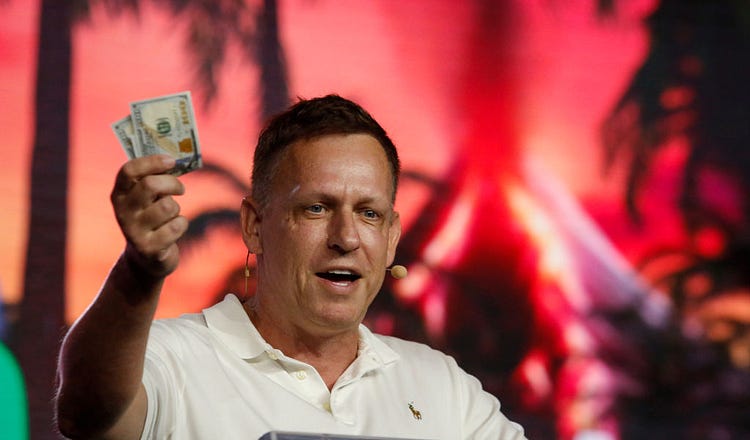Weekend Listening: Peter Thiel Says We Have Bigger Problems Than Wokeness

Billionaire investor and PayPal founder Peter Thiel at the Bitcoin 2022 Conference in Miami. (Marco Bello via Getty Images)
The ‘pariah of Silicon Valley’ on China, TikTok, AI, Donald Trump and Ron DeSantis, Florida and California, God, new moonshots, and how to make America great again.
145
A few weeks ago my producer, Candace, and I went to Miami to talk to the tech entrepreneur and investor Peter Thiel at his home. Peter Thiel is one of the most formative men in modern Silicon Valley. He’s also one of the most despised people among the New York media set, having successfully conspired to put the publication Gawker out of business.
So dep…
Continue Reading The Free Press
To support our journalism, and unlock all of our investigative stories and provocative commentary about the world as it actually is, subscribe below.
$8.33/month
Billed as $100 yearly
$10/month
Billed as $10 monthly
Already have an account?
Sign In

